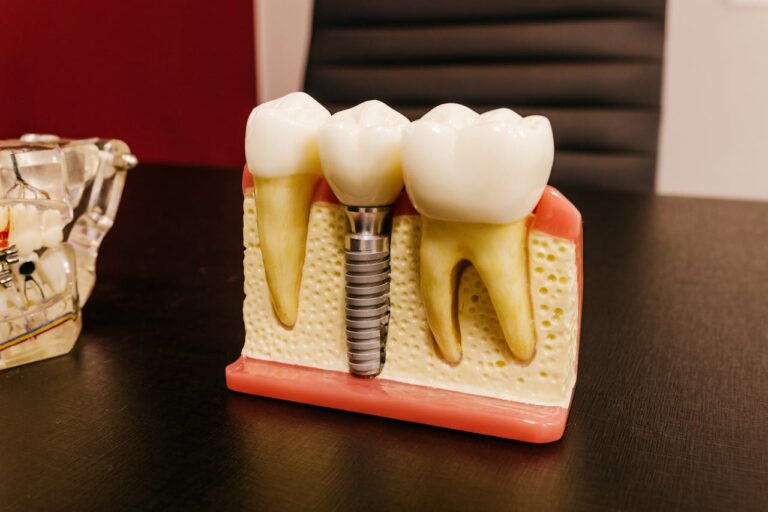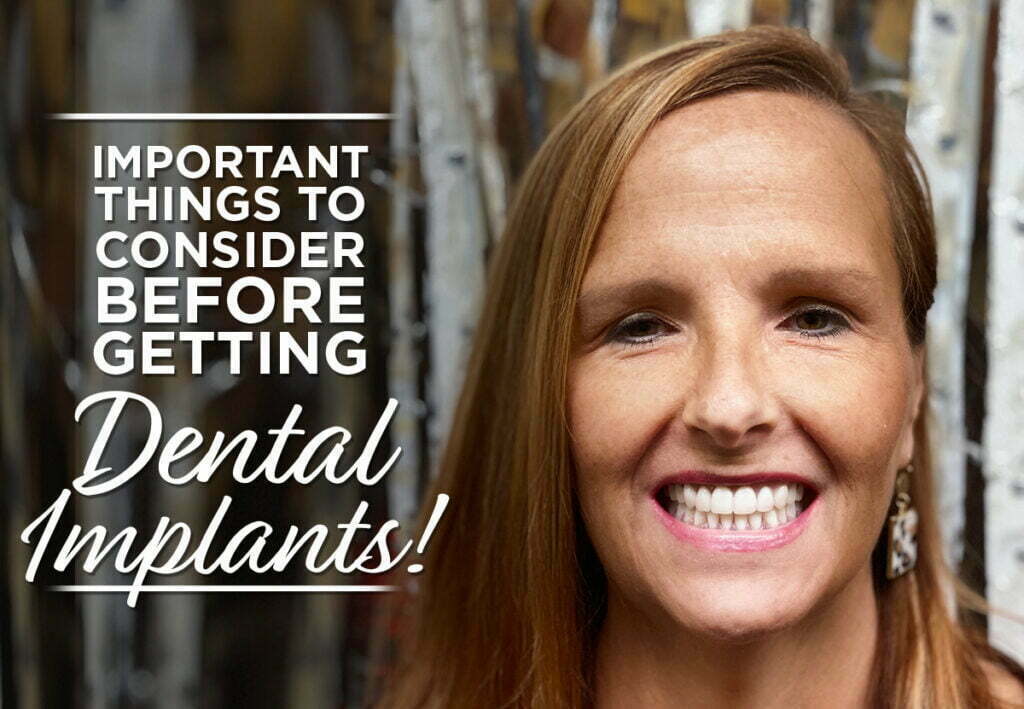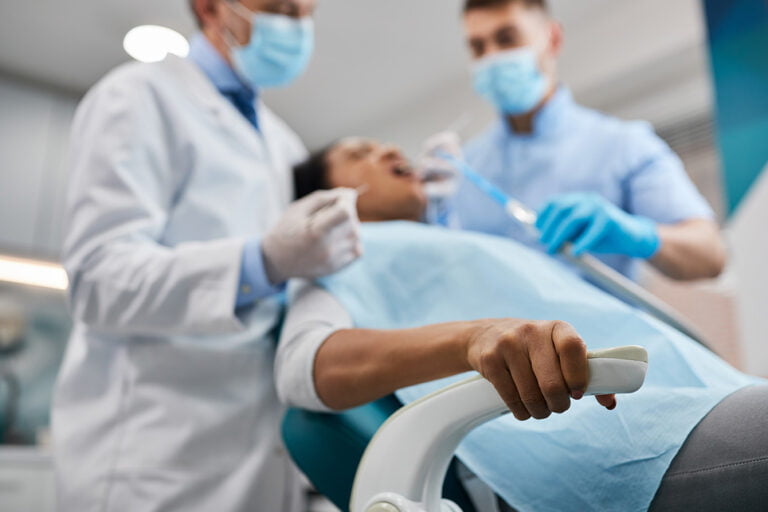
Are Dental Implants Good? Answering the Most Important Questions
Addressing key questions on dental implant options, the procedure from consultation to recovery, maintenance tips, cost analysis, and determining suitability.
New Smile.
New Smile.

Are you looking into dental implants? Are you curious if they’re the right option for you and your oral health? Many individuals look into dental implants as a way to replace the teeth they’re missing, or to anchor a set of dentures. While implants are a great option for many people looking for a strong, life-like set of teeth to replace damaged or missing ones, there are always some variables to consider.
1. How much bone is present?
The amount of bone in your jaw is an extremely important variable to consider because it’s how we determine how well your implant will attach to the inside of your mouth. Think of it like a project you work on at home: You often use a screw to combine two objects together and secure them in place. When it comes to dental implants, your dentist uses available jaw bone to secure the implants in place. When you have a missing tooth for an extended period of time, your jawbone collapses inside, shrinking itself in density, width, and height. This causes not only damage to your mouth, but your overall physical appearance and your functionality when eating or talking. After this starts happening, there’s little chance of being able to attach an implant to the jawbone successfully.
2. How do you tell how much bone is present?
First, your dentist will assess the condition of your mouth. They first do a physical examination, and then they take x-rays. This will give them a better idea of how much bone is left, and if it’s in healthy enough condition for implants to be placed. A lack of bone or advanced bone loss is the top reason why individuals may not qualify for dental implants.
3. Are you a tobacco user?
If the answer is yes, then dental implants may not be a great fit for you. It’s been proven that heavy smokers have a higher risk for implant failure. So while you could still receive implants, if you’re a tobacco user, the likelihood of them surviving long-term is minimized due to increased healing time from secondary factors related to tobacco usage. Much like when you get a tooth removed, smoking causes massive disruption in the natural healing process of your mouth. The constant sucking and pulling on air through the mouth while smoking a cigarette increases dry sockets and introduces bacteria and other chemicals into the implant site. Many dentists will ask you to attempt to quit smoking before undergoing a dental implant surgery so you can increase the likelihood of a successful procedure and outcome.
4. How is your overall health?
You might wonder why this question is important, and what it has to do with your teeth. The short answer is that the wellbeing of your physical health is sometimes directly related to your oral health. It’s important to consult with your dentist on any physical or biological health concerns you may have, such as diabetes, autoimmune disorders, HIV, if you are on any blood-thinning medications, or if you have any allergies. Common allergies that should be discussed are latex and metal allergies, such as titanium.
5. What type of implant is right for you?
While each patient is different, most dentists recommend the method of using just four implants to fully replace your teeth, or our Permanent Full Smile procedure. With this method, “all” of your teeth supported on “four” dental implants. Prosthetic teeth are placed inside the mouth to restore badly broken or decaying teeth, and they emulate real teeth. This gives you back the ability to talk, chew, and can even restore your jawbone to a healthier state. This incredible technology gives patients a smile that can last them at least 20 years, with great potential to last an entire lifetime when properly cared for.
6. What are the best benefits of dental implants?
They can last a lifetime. The implants are made from titanium and placed in the jaw bone. The additional biocompatible materials used are non-toxic, which means they resist being rejected by your body.
They look and feel like real teeth. One of the biggest advantages of dental implants is that you receive a fully-restored and functional set of teeth to replace what was once broken or missing. With that comes the ability to eat the food you enjoy again without pain. You can treat your implants as if they’re your real teeth by brushing, flossing, and maintaining overall good oral hygiene practices.
They improve your appearance. Dental implants will replace gaps, broken teeth, crooked teeth, and missing teeth. They give you a healthy smile, which in turn gives you the confidence you need to then feel great about smiling and showing your teeth.
They prevent sagging and premature aging. Many patients looking at dental implants do so because they’ve noticed their jaw starting to tuck closer to their chin. This happens because of bone loss resulting from missing or gapped teeth. This can cause physical changes to the structure and appearance of the face, such as wrinkles around the mouth, thinning of the lips, and a pointed chin.
A healthy and beautiful smile that can last a lifetime admittedly doesn’t come cheap. But even with more costly procedures, dental implants are an incredible investment for the patients who receive them. Implants range in price on a case-by-case basis, so be sure to get an evaluation from your dentist and discuss all your options for treatment and payment.
Having dental implant surgery should be considered a serious procedure with lifelong benefits. For this reason, it’s important to feel ready to commit to the process, and subsequently taking care of your oral health afterward. Be sure to consider all the variables listed above, and talk with your dentist about what types of implants are available, what would be the best option for you, and all the costs associated with it.
If you’re ready to have a discussion about dental implants, we look forward to hearing from you!

Addressing key questions on dental implant options, the procedure from consultation to recovery, maintenance tips, cost analysis, and determining suitability.

Discover the benefits, drawbacks, and considerations of each option to make an informed decision when exploring dental implants and dentures.

The Significance of Candidate Evaluation for Dental Implant Success Dental implants have marked a paradigm shift in the field of

Conquering Dental Anxiety with Sedation Dentistry Dental anxiety is a common concern among many individuals. The mere thought of sitting

Firstly, before we answer your question on why you possibly need a bone graft, let’s answer the more obvious question,